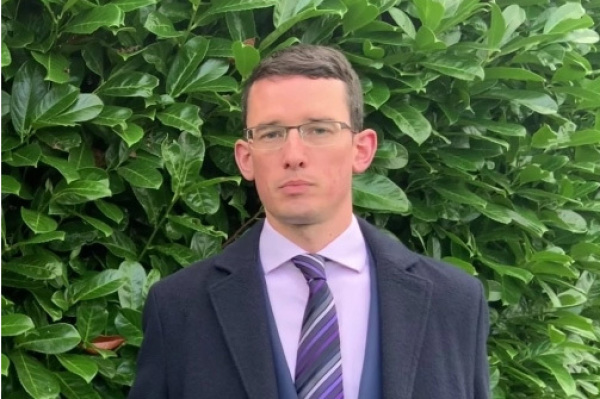47th anniversary of Roe v. Wade: Increasing opposition to abortion nationwide

Forty-seven years ago, the United States Supreme Court handed down the infamous Roe v. Wade decision, which legalized abortion throughout the country. Since then, approximately 60 million babies have died as a result of abortion.
The magnitude of this tragedy cannot be overstated. Despite life being an “unalienable right,” as proclaimed by the Declaration of Independence, millions of innocent human lives have been unjustly extinguished as the result of egregious judicial activism.
In recognition of this tragedy, President Donald J. Trump has once again designated January 22, the anniversary of Roe v. Wade, as National Sanctity of Human Life Day. Last year, the President marked the occasion by noting the human cost of abortion, saying, “We mourn the lives cut short, and the tremendous promise lost, as a result of abortion. As a Nation, we must resolve to protect innocent human life at every stage.”
This coming Friday, hundreds of thousands of pro-life supporters will gather in Washington, D.C. to take part in the 47th annual March for Life. While they will mourn the millions of Americans who never had a chance to be born, they will also celebrate the pro-life movement’s growing momentum and many significant public policy accomplishments that protect life. Last year, President Trump addressed the marchers, pledging continued support for the movement. “Every child is a sacred gift from God,” the President stated. He later vowed to veto any legislation that “weakens the protection of human life.”
In addition to delivering strong public statements in support of life, the Trump administration has taken significant action to protect the unborn and limit abortion. In President Trump’s first week in office, he reinstated and expanded the Mexico City Policy, in order to prevent taxpayer funds in all global health programs from going to foreign non-governmental organizations that provide or actively promote abortion. In May 2018, the Department of Health and Human Services (HHS) introduced a new regulation that prohibits recipients of Title X family planning funding from providing or referring patients for abortions. As a result of the new rule, Planned Parenthood voluntarily withdrew from Title X, effectively defunding itself of $60 million in annual revenue.
Other pro-life wins at the federal level include the establishment of the Conscience and Religious Freedom Division within HHS, which works to protect healthcare professionals from being forced to violate their consciences by participating in or promoting abortion, for example. In August 2019, this office sent a violation notice to a Vermont hospital for forcing a nurse to participate in an abortion procedure despite her moral objections. Also last summer, the Trump administration issued a policy to limit the use of tissue derived from aborted babies in government-funded research. Perhaps most significantly, the President has kept his promise to appoint only pro-life judges by appointing over 180, including two U.S. Supreme Court Justices.
A growing number of states have enacted their own pro-life laws. Legislators in Missouri and Kentucky approved measures that prohibit doctors from performing an abortion on the basis of a Down Syndrome diagnosis. The Supreme Court has agreed to hear a case involving a Louisiana law that requires abortion doctors to have admitting privileges at a nearby hospital. The case will be decided this summer.
Pro-life momentum continues to build, as evidenced by two developments just last week. First, the West Virginia House passed a bill that would strengthen the state’s protections for babies who survive an abortion. The bill passed 93-5. This bipartisan vote is only the most recent evidence that many Democrat state legislators are pro-life. And they aren’t alone: 77 percent of Americans of both parties believe children born alive during an attempted abortion deserve medical care.
Second, over 30 House Republicans marked the 47th anniversary of the Roe v. Wade decision with moving speeches on the House floor. Led by Rep. Chris Smith, the representatives highlighted the devastating effects of abortion and celebrated the sanctity of all human life. Referring to Friday’s march, Rep. Jody Hice explained that the event is a “unique event in American culture” because participants are “marching on behalf of the most vulnerable among us, those who have not yet had the opportunity to take their first breath of life.”
Abortion is one of the most contentious and sensitive moral and political questions in our country today. Still, there are plenty of reasons for members of the pro-life movement to be optimistic. The additions of Justices Neil Gorsuch and Brett Kavanaugh to the Supreme Court signal that Roe’s 47-year reign of death may be approaching its end. Not only that, progress made over the past four decades—including advances in ultrasound technology, the survival of premature babies at earlier and earlier ages, and the sacrificial work of hundreds of pregnancy centers—has reframed the abortion debate and opened the eyes of millions of Americans to see the personhood of the unborn. As hearts and minds continue to change, it is our prayer that the sanctity of human life would be honored not just on January 22, but every day of the year.
David Closson is the Director of Christian Ethics and Biblical Worldview at Family Research Council. Tessa Longbons is a Research Associate with the Charlotte Lozier Institute.





















